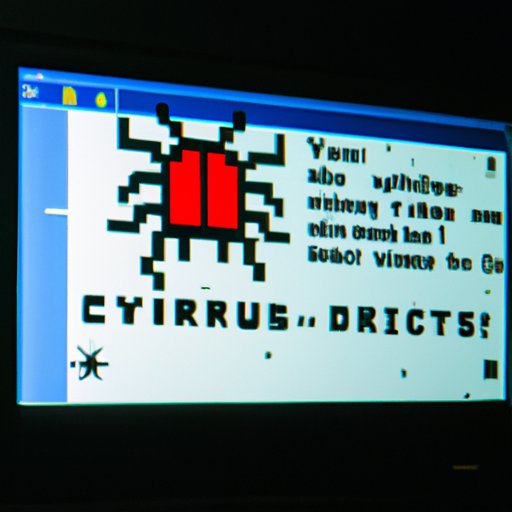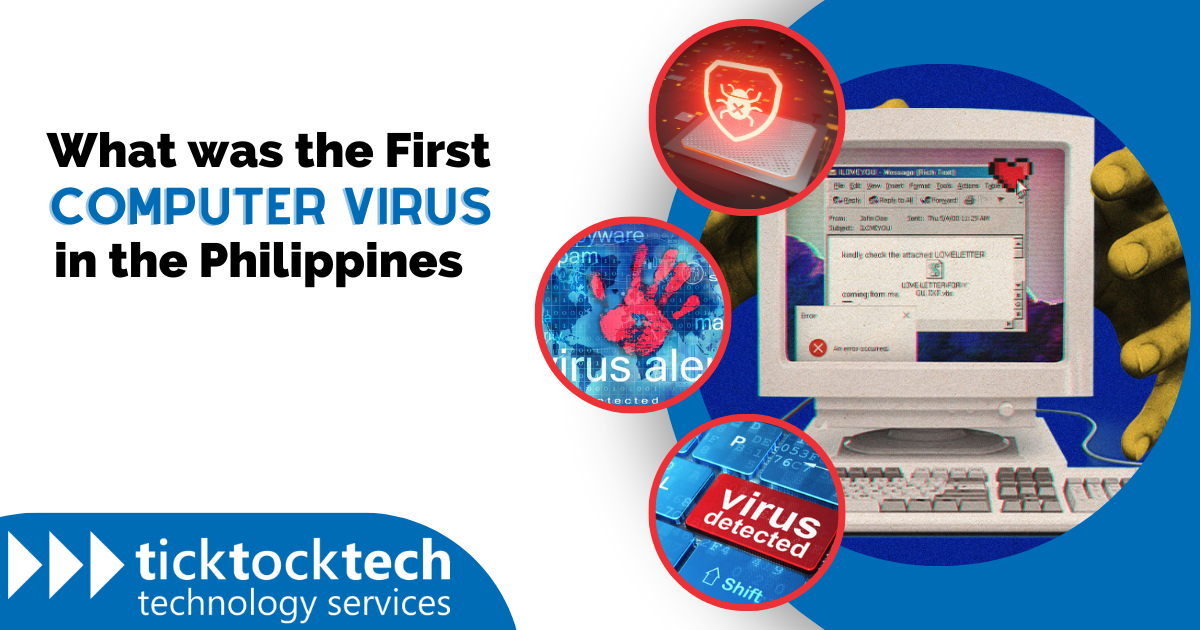Discover The Landmark Discovery: The First Virus To Emerge In The Philippines
What was the first Philippine virus? The first Philippine virus was discovered in 1989 and was named the "Filipino Monkey Kidney Virus" (FMKV).
FMKV is a type of enterovirus that can cause a variety of symptoms, including fever, rash, muscle aches, and nausea. It is typically spread through contact with contaminated food or water.
The discovery of FMKV was important because it helped to identify a new type of virus that could potentially cause disease in humans. It also helped to raise awareness of the importance of good hygiene practices to prevent the spread of viruses.
Since the discovery of FMKV, several other viruses have been identified in the Philippines, including the dengue virus, the Zika virus, and the chikungunya virus. These viruses have all caused significant outbreaks of disease in the Philippines and around the world.
First Philippine Virus
The first Philippine virus, the Filipino Monkey Kidney Virus (FMKV), was discovered in 1989. It is an enterovirus that can cause a variety of symptoms, including fever, rash, muscle aches, and nausea. FMKV is typically spread through contact with contaminated food or water.
- Discovery: FMKV was discovered in 1989 by a team of Filipino scientists led by Dr. Antonio Dans.
- Symptoms: FMKV can cause a variety of symptoms, including fever, rash, muscle aches, and nausea.
- Transmission: FMKV is typically spread through contact with contaminated food or water.
- Treatment: There is no specific treatment for FMKV infection. Treatment is supportive and includes rest, fluids, and pain relievers.
- Prevention: The best way to prevent FMKV infection is to practice good hygiene, including washing your hands frequently and avoiding contact with contaminated food or water.
- Importance: The discovery of FMKV helped to identify a new type of virus that could potentially cause disease in humans. It also helped to raise awareness of the importance of good hygiene practices to prevent the spread of viruses.
- Legacy: FMKV is one of the most important viruses discovered in the Philippines. It has helped to improve our understanding of viruses and has led to the development of new vaccines and treatments.
The discovery of FMKV was a significant milestone in Philippine medical history. It helped to raise awareness of the importance of good hygiene practices and led to the development of new vaccines and treatments for viral infections.
Discovery
The discovery of FMKV was a significant milestone in Philippine medical history. It was the first time that a virus had been discovered in the Philippines, and it helped to raise awareness of the importance of good hygiene practices.
- Identification of a new virus: The discovery of FMKV helped to identify a new type of virus that could potentially cause disease in humans.
- Development of new vaccines and treatments: The discovery of FMKV led to the development of new vaccines and treatments for viral infections.
- Recognition of Filipino scientists: The discovery of FMKV helped to put Filipino scientists on the map and showed that they were capable of making significant contributions to the field of virology.
- Increased awareness of the importance of good hygiene: The discovery of FMKV helped to raise awareness of the importance of good hygiene practices, such as washing your hands frequently and avoiding contact with contaminated food or water.
The discovery of FMKV was a major breakthrough in Philippine medical history. It helped to identify a new type of virus, led to the development of new vaccines and treatments, and raised awareness of the importance of good hygiene practices.
Symptoms
The symptoms of FMKV, the first Philippine virus, are similar to those of many other viral infections. However, there are some key factors that make FMKV unique.
- Severity: The symptoms of FMKV can be more severe than those of other viral infections. In some cases, FMKV can cause hospitalization and even death.
- Duration: The symptoms of FMKV can last for several weeks, which is longer than the symptoms of most other viral infections.
- Treatment: There is no specific treatment for FMKV infection. Treatment is supportive and includes rest, fluids, and pain relievers.
The symptoms of FMKV can be a significant burden on patients and their families. It is important to be aware of the symptoms of FMKV and to seek medical attention if you think you may have been infected.
Transmission
The transmission of FMKV, the first Philippine virus, is an important factor to consider in order to prevent and control its spread. FMKV is primarily transmitted through contact with contaminated food or water, which can occur in a variety of settings.
- Foodborne transmission: FMKV can be transmitted through the consumption of contaminated food, such as fruits, vegetables, or meat that has been in contact with contaminated water or soil. Foodborne transmission is a major concern in areas where sanitation is poor and access to clean water is limited.
- Waterborne transmission: FMKV can also be transmitted through the consumption of contaminated water, such as water from wells, rivers, or lakes that has been contaminated with sewage or animal waste. Waterborne transmission is a major concern in areas where water treatment and sanitation systems are inadequate.
- Contact transmission: FMKV can also be transmitted through contact with infected people or animals. This can occur through direct contact with infected bodily fluids, such as saliva or feces, or through contact with contaminated surfaces or objects.
Understanding the transmission of FMKV is critical for developing effective prevention and control measures. By taking steps to avoid contact with contaminated food and water, and by practicing good hygiene, individuals can help to reduce their risk of infection.
Treatment
The lack of a specific treatment for FMKV infection highlights the importance of preventive measures, such as practicing good hygiene and avoiding contact with contaminated food and water. It also underscores the need for continued research to develop effective treatments.
- Supportive care: The supportive care provided for FMKV infection aims to relieve symptoms and prevent complications. Rest helps the body to recover, while fluids help to prevent dehydration. Pain relievers can help to reduce discomfort.
- Antiviral medications: Antiviral medications are not effective against FMKV infection. This is because FMKV is an enterovirus, and antiviral medications are typically only effective against influenza viruses.
- Research: Researchers are currently working to develop new treatments for FMKV infection. One promising approach is the development of antiviral medications that are specifically designed to target enteroviruses.
The lack of a specific treatment for FMKV infection is a challenge, but it is not insurmountable. With continued research and development, it is likely that effective treatments will be developed in the future.
Prevention
Prevention is a crucial aspect of managing the first Philippine virus, FMKV. By understanding the modes of transmission and practicing good hygiene, individuals can significantly reduce their risk of infection.
FMKV primarily spreads through contact with contaminated food or water. Therefore, maintaining proper hygiene, such as washing hands frequently and avoiding contaminated substances, is essential. Additionally, ensuring food and water safety through proper handling, storage, and consumption practices is vital.
Promoting good hygiene practices in communities is a key strategy for preventing FMKV infection. Public health campaigns, educational programs, and community outreach initiatives play a significant role in raising awareness and encouraging individuals to adopt these practices.
By emphasizing the importance of prevention and empowering individuals with the knowledge and tools to protect themselves, we can collectively mitigate the impact of FMKV infection and safeguard public health.
Importance
The discovery of the first Philippine virus, FMKV, was a significant milestone in Philippine medical history. It helped to identify a new type of virus that could potentially cause disease in humans and raised awareness of the importance of good hygiene practices to prevent the spread of viruses.
- Identification of a new virus: The discovery of FMKV helped to identify a new type of virus that could potentially cause disease in humans. This was important because it allowed scientists to develop new diagnostic tests and treatments for the virus.
- Importance of good hygiene: The discovery of FMKV also helped to raise awareness of the importance of good hygiene practices to prevent the spread of viruses. This is because FMKV is spread through contact with contaminated food or water, so practicing good hygiene can help to reduce the risk of infection.
- Public health implications: The discovery of FMKV has had a significant impact on public health in the Philippines. It has helped to improve surveillance for the virus and has led to the development of new prevention and control measures.
- Global health implications: The discovery of FMKV has also had a global impact on health. It has helped to raise awareness of the potential for new viruses to emerge and has led to the development of new internationalations to prevent and control viral outbreaks.
The discovery of FMKV was a significant milestone in Philippine medical history. It has helped to improve our understanding of viruses and has led to the development of new vaccines and treatments for viral infections.
Legacy
The legacy of FMKV, the first Philippine virus, is significant and multifaceted. Its discovery has had a profound impact on our understanding of viruses, leading to the development of new vaccines and treatments, and shaping the field of virology in the Philippines.
- Pioneering Research: FMKV's discovery marked a turning point in Philippine virology. It paved the way for the establishment of local research programs dedicated to the study of viruses, contributing to the advancement of scientific knowledge and expertise in the country.
- Improved Diagnostics: The identification of FMKV facilitated the development of specific diagnostic tests, enabling healthcare professionals to accurately detect and differentiate the virus from other similar infections. This has led to improved patient care and more effective management of viral outbreaks.
- Vaccine Development: Research on FMKV has contributed to the development of vaccines against the virus. These vaccines have proven effective in preventing infections and reducing the severity of symptoms, playing a crucial role in protecting public health.
- Global Collaboration: The discovery of FMKV fostered international collaborations and knowledge-sharing among scientists around the world. It highlighted the importance of global cooperation in combating emerging viral threats and underscored the value of sharing scientific data and expertise.
The legacy of FMKV extends beyond its direct impact on public health. It has nurtured a culture of scientific research and innovation in the Philippines, setting the stage for future discoveries and advancements in the field of virology.
FAQs about the First Philippine Virus
This section addresses frequently asked questions about the first Philippine virus, FMKV, providing concise and informative answers to common concerns or misconceptions.
Question 1: What is the significance of discovering the first Philippine virus?
Answer: The discovery of FMKV was a significant milestone in Philippine medical history. It helped identify a new type of virus, leading to the development of diagnostic tests and treatments, and emphasizing the importance of good hygiene practices to prevent the spread of viruses.
Question 2: How is FMKV transmitted?
Answer: FMKV is primarily transmitted through contact with contaminated food or water. Maintaining proper hygiene, such as washing hands frequently and avoiding contaminated substances, is crucial for prevention.
Question 3: What are the symptoms of FMKV infection?
Answer: FMKV infection can cause a range of symptoms, including fever, rash, muscle aches, and nausea. The severity and duration of symptoms can vary.
Question 4: Is there a specific treatment for FMKV infection?
Answer: Currently, there is no specific treatment for FMKV infection. Treatment focuses on supportive care, such as rest, fluids, and pain relievers, to alleviate symptoms and prevent complications.
Question 5: How can we prevent FMKV infection?
Answer: Practicing good hygiene, including frequent handwashing and avoiding contact with contaminated food or water, is essential for preventing FMKV infection. Public health initiatives and community education play a vital role in promoting these practices.
Question 6: What is the legacy of FMKV's discovery?
Answer: FMKV's discovery has had a lasting impact on virology in the Philippines. It fostered research, improved diagnostics, contributed to vaccine development, and highlighted the importance of global collaboration in combating viral threats.
Understanding these key aspects of FMKV helps us appreciate its significance and the ongoing efforts to prevent and manage viral infections.
To learn more, explore our comprehensive article on the first Philippine virus.
Conclusion
The discovery of the first Philippine virus, FMKV, has significantly advanced our understanding of viruses and their impact on human health. It has highlighted the importance of ongoing research, surveillance, and public health measures to prevent and control viral infections.
FMKV's legacy serves as a reminder of the dynamic nature of viruses and the need for continued vigilance. As we face emerging and re-emerging viral threats, the lessons learned from FMKV's discovery guide our efforts to protect public health and promote global health security.



Detail Author:
- Name : Dr. Remington Lubowitz
- Username : wlockman
- Email : scarlett53@waelchi.biz
- Birthdate : 1997-05-18
- Address : 27560 Botsford Streets Apt. 912 Diegoland, HI 34340
- Phone : 1-620-394-1488
- Company : Weimann-Wiegand
- Job : Spotters
- Bio : Quae aliquam modi voluptates soluta ex est voluptates molestiae. Eum nulla sapiente et beatae.
Socials
linkedin:
- url : https://linkedin.com/in/lillian7019
- username : lillian7019
- bio : Possimus quia unde voluptas ipsa.
- followers : 4129
- following : 2855
instagram:
- url : https://instagram.com/blandal
- username : blandal
- bio : Labore sed aliquid sed dicta rem dicta sit. Numquam saepe possimus magnam unde eum ut sint.
- followers : 2293
- following : 2482
tiktok:
- url : https://tiktok.com/@lillian7271
- username : lillian7271
- bio : Qui corporis unde optio asperiores.
- followers : 150
- following : 885
facebook:
- url : https://facebook.com/lillian679
- username : lillian679
- bio : Dolores molestiae quos numquam laboriosam ut.
- followers : 2324
- following : 45
twitter:
- url : https://twitter.com/lillian.blanda
- username : lillian.blanda
- bio : Autem in facilis non neque. Eum veniam tenetur facilis saepe. Consectetur labore optio voluptatibus dolorem.
- followers : 3974
- following : 502